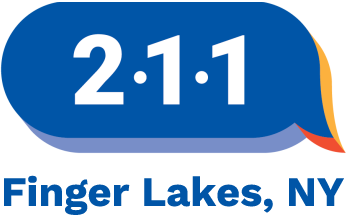Substance Abuse Services
thru: Confidential Help for Alcohol and Drugs, Inc./C.H.A.D.
• Assessment/Evaluation: comprehensive substance use disorder evaluations for individuals who are in need of assessing their treatment needs.
• Outpatient Services: to include Individual and Group counseling.
• C.H.A.D: offers Medication Assisted Therapy to include Suboxone, a combination of the opioid medication buprenorphine, and naloxone, which blocks the specific effects of opioids that lead to opioid abuse and addiction. Additional options are available such as Sublocade, Vivitrol and Naltrexone. M.A.T. assessment is available to all patients to assist them in meeting their individualized recovery goals.
• Adult Intensive Outpatient Program (IOP): offered during daytime hours. Groups meet three times per week for 3 hours per session for six weeks to provide support through the early stages of change. Groups provide a combination counseling topics to include Recovery Skills, Relapse Prevention and Recovery Processing groups.
• Education Therapy Program: educates those who have experienced problems in their life as a direct result of their alcohol/substance abuse. The program is a minimum of 14 weeks with goals of increasing the awareness substance use disorder; introduction to self-help groups (AA/NA); and the encouragement of self-assessment. This is a non-intensive program which meets one time per week for one hour per session. There are AM and PM groups available.
• Relapse Prevention Program: addresses the needs of those with previous treatment experience and recurrence. The intent is to provide relapse prevention to clients who live in a supportive environment and may be seeking to remain employed. Relapse Prevention evaluates individuals previous treatment/recovery experiences so that they may learn from them and build a sober support system and recovery program for ongoing sobriety.
• Adolescent Outpatient Program: The Adolescent Outpatient Program assists teens through individual and group therapy with the following issues:
• School Based Prevention Program: SPORT is provided to K-12. SPORT Prevention Plus Wellness (PPW) is the nation’s only easy to use, single-session substance use prevention program designed to increase fitness, health and performance-enhancing behaviors like physical activity, sports participation, healthy eating, getting adequate sleep, and practicing stress control for youth.
• Too Good for Violence (TGFV): is a school-based violence prevention and character education program designed to improve student behavior and minimize aggression. TGFV is designed to help students in Kindergarten through 8th grade learn the skills they need to get along peacefully with others.
• School Based Intervention Program (Adolescent): provides assessments and one-to-one counseling to "at risk" youth in selected Cayuga County middle and high schools. The services are provided on site and are short term. The service will also provide crisis and referral services on a limited basis. The prevention staff also provide information to parents via school-based open houses and health fairs.
• Cayuga County Jail Services: counseling services are provided to the Cayuga County Jail whose main focus is to work with those who are incarcerated with an alcohol and/or substance use disorder issue. The counselor consults with local attorneys and judges to obtain assessments, recommendations and referrals for the purpose of assisting placement in an appropriate treatment setting. The counselor will also see incarcerated persons whose families have requested services.
• Outpatient Services: to include Individual and Group counseling.
• C.H.A.D: offers Medication Assisted Therapy to include Suboxone, a combination of the opioid medication buprenorphine, and naloxone, which blocks the specific effects of opioids that lead to opioid abuse and addiction. Additional options are available such as Sublocade, Vivitrol and Naltrexone. M.A.T. assessment is available to all patients to assist them in meeting their individualized recovery goals.
• Adult Intensive Outpatient Program (IOP): offered during daytime hours. Groups meet three times per week for 3 hours per session for six weeks to provide support through the early stages of change. Groups provide a combination counseling topics to include Recovery Skills, Relapse Prevention and Recovery Processing groups.
• Education Therapy Program: educates those who have experienced problems in their life as a direct result of their alcohol/substance abuse. The program is a minimum of 14 weeks with goals of increasing the awareness substance use disorder; introduction to self-help groups (AA/NA); and the encouragement of self-assessment. This is a non-intensive program which meets one time per week for one hour per session. There are AM and PM groups available.
• Relapse Prevention Program: addresses the needs of those with previous treatment experience and recurrence. The intent is to provide relapse prevention to clients who live in a supportive environment and may be seeking to remain employed. Relapse Prevention evaluates individuals previous treatment/recovery experiences so that they may learn from them and build a sober support system and recovery program for ongoing sobriety.
• Adolescent Outpatient Program: The Adolescent Outpatient Program assists teens through individual and group therapy with the following issues:
- Handling peer pressure.
- Developing sober relationships/friendships.
- Family substance use disorder issues.
- Specific recovery issues designed for teens.
- Exploration of the Twelve Steps and the role of the NA/AA for long term recovery.
- Relapse triggers and behaviors.
- Adjusting to sober lifestyles in the school setting.
- Empathetic, one-on-one recovery support and mentorship.
- Connecting you to formal recovery supports such as 12 step programs.
- Non-clinical crisis support, especially following cases of hospitalization or incarceration.
- Education about various modes of recovery, and social and/or other support services.
- Modeling coping skills and identify strengths.
- In-home and community-based services, and more.
• School Based Prevention Program: SPORT is provided to K-12. SPORT Prevention Plus Wellness (PPW) is the nation’s only easy to use, single-session substance use prevention program designed to increase fitness, health and performance-enhancing behaviors like physical activity, sports participation, healthy eating, getting adequate sleep, and practicing stress control for youth.
• Too Good for Violence (TGFV): is a school-based violence prevention and character education program designed to improve student behavior and minimize aggression. TGFV is designed to help students in Kindergarten through 8th grade learn the skills they need to get along peacefully with others.
• School Based Intervention Program (Adolescent): provides assessments and one-to-one counseling to "at risk" youth in selected Cayuga County middle and high schools. The services are provided on site and are short term. The service will also provide crisis and referral services on a limited basis. The prevention staff also provide information to parents via school-based open houses and health fairs.
• Cayuga County Jail Services: counseling services are provided to the Cayuga County Jail whose main focus is to work with those who are incarcerated with an alcohol and/or substance use disorder issue. The counselor consults with local attorneys and judges to obtain assessments, recommendations and referrals for the purpose of assisting placement in an appropriate treatment setting. The counselor will also see incarcerated persons whose families have requested services.
This program is offered here:
Confidential Help for Alcohol and Drugs, Inc./C.H.A.D.
75 Genesee Street
Suite 4
Auburn NY 13021
Suite 4
Auburn NY 13021
Main:
Hours:
M-TH 8:30AM-7:30PM.
F 8:30AM-4:30PM.
Walk in: M-F 9:00AM-4:30PM.
Evening groups are available between 6:00PM-9:00PM.
F 8:30AM-4:30PM.
Walk in: M-F 9:00AM-4:30PM.
Evening groups are available between 6:00PM-9:00PM.
Bus Service:
CENTRO bus line picks up and drops off here.
Disabilities Access:
Totally handicap accessible.
Website
Staff
Caroline Rouen Dixon, LCSW-R, CASAC
Executive Director
Carolined@chadcounseling.org
315-253-9786
Program Categories
Alcohol Use Disorder Support Groups
Drug Use Disorder Support Groups
Central Intake/Assessment for Substance Use Disorders
Alcohol Use Disorder Education/Prevention
Drug Use Disorder Education/Prevention
Comprehensive Outpatient Substance Use Disorder Treatment
Medication Assisted Maintenance Treatment for Substance Use Disorders


